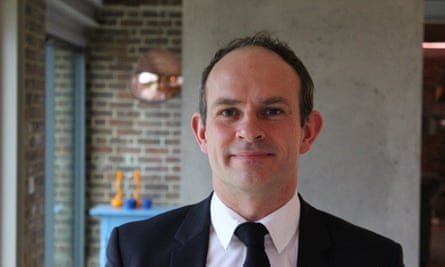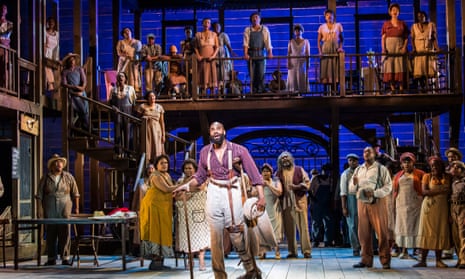Opera is shockingly white, overly traditional and too slow to change, according to the leader of one of the UK’s leading companies.
Stuart Murphy, the former TV executive who joined English National Opera as its chief executive last spring, made the damning assessment as he announced new measures to tackle its lack of diversity.
That includes positive action to recruit at least four chorus members from a black, Asian and ethnic minority (BAME) background.
Murphy recalled joining the company and and finding it “really shocking” that 39 of ENO’s 40-strong chorus were white. “We weren’t true to our values, we didn’t represent Britain,” he said. “It just felt strange to me … Young white audiences also think it is weird.”
He pointed to figures showing that of the 170 permanent chorus singers in the UK, less than five were from a BAME background. In terms of representation, it should be 22. “As an industry we are getting it really, really wrong.”
Murphy said the founding principle of ENO was “opera for everyone”. “It is in our DNA, it is in our core values and we’ve got to make it work for every single bit of the organisation.” Not representing the British population meant it was not being true to its core values, he said.
“An overrepresentation of white people must affect the make-up of who applies to us, who works here, who sits in the audience. It looked patently unfair to me and old-fashioned.”
He said it had generally been “white men from Oxbridge, like me” doing the recruiting. “It is no surprise if we keep doing the same interview and audition process, the same adverts … they are going to hire their own.”
The lack of diversity in the arts is one of the sector’s most urgent issues and ENO is not the only company trying to tackle it. Many observers have complained, however, of there being lots of talking, and less doing. Arts Council England’s annual diversity report last year, for example, identified “a large gap between organisational aspiration and action”.

Murphy said opera had a particular problem. “There has been something about classical music and opera that tends to hire its own, whether its class, whether its gender, or ethnicity. That just felt strange.
“There is something about opera any way that feels quite a bit behind other media. Generally there has just been a few gatekeepers who decide the taste of opera and they are pretty similar people with pretty similar tastes.”
Attempts to make changes often came up against “older audiences, traditional audiences” who have “generally wanted the genre to be sealed in aspic”.
Four new members of the chorus from a BAME background will be hired for the 19/20 season with a view to extend for a further season. It would also seek to employ singers from a BAME background for extra chorus positions.
He also announced three annual and paid ENO “director observerships” offering emerging BAME directors the chance to work alongside “world-renowned opera directors”.
The measures add to a change made by ENO last year in its orchestra recruitment when it introduced blind auditions for musicians.
The company is also trying to diversify its audience and announced before Christmas free balcony tickets on Saturday nights for under-18s.
“It has been a huge hit and I think the atmosphere will change a lot,” said Murphy. The company currently offers balcony dress rehearsal tickets to young people from its outreach programme. “They are whooping and hollering and it is more rambunctious and I want a lot of that atmosphere to transfer to Saturday nights.”
The policies also extend to the house’s principle singers, said Murphy. He said in the current season 13% of singers are BAME, a figure that does not include last year’s Porgy and Bess, a show Gershwin insisted should always have a black cast.
“It is really hard to re-correct stuff quickly because in opera talent is booked several years ahead.,” said Murphy.
Murphy joined ENO last April after a career in television that included being the launch director of BBC Three and the director of Sky’s entertainment channels.
